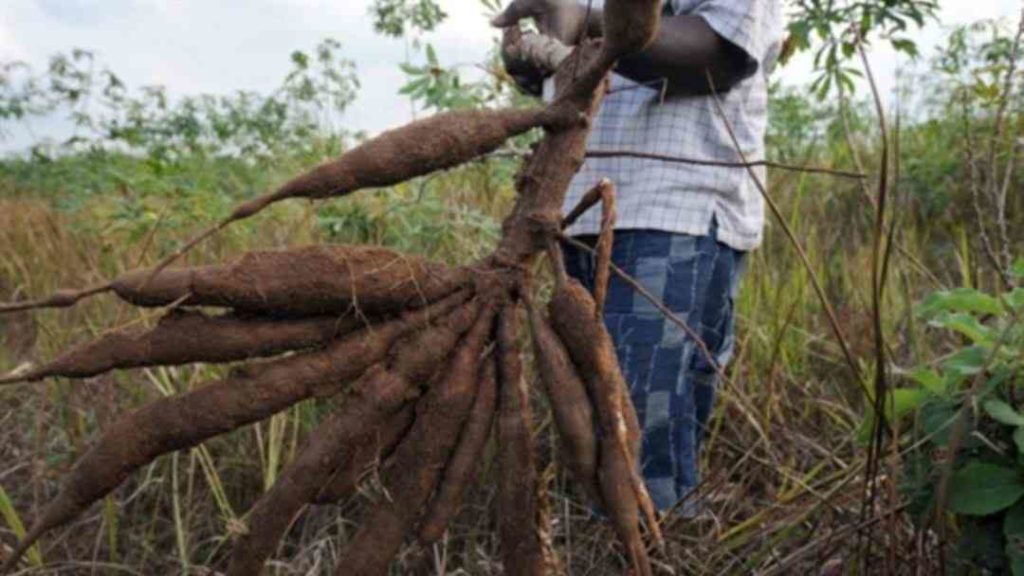The International Institutes of Tropical Agriculture (IITA) has said that cassava seed system is profitable for all players across the value chain and that, if properly deployed, will create jobs for all.

Project Director, Dr Hemant Nitturkar of the Ibada, Oyo State-based IITA, who made this known in a statement on Sunday, June 7, 2020 in Abuja, said the Building and Economically Sustainable, Integrated Cassava Seed System (BASICS) had demonstrated that the cassava seeds system could be profitable for the players involved across the value chain.
He said that it could sustainably deploy improved varieties of cassava stems to farmers while creating jobs.
According to him, BASICS has been changing Nigeria’s cassava seed sector and creating seed entrepreneurs for the past decade.
He said Africa had been grappling with the sustainable diffusion of improved cassava varieties due to a weak and uncoordinated dissemination strategy.
“In past five years, BASICS has created a viable and sustainable cassava seed system in Nigeria, opening a vista of opportunities for seed entrepreneurs and cassava farmers looking for new and improved varieties for cultivation,” he said.
Nitturkar said that the project was able to link breeders and researchers, who developed improved cassava varieties and technologies; with farmers and processors who benefitted from high-quality planting materials.
According to him, the BASICS project has created over 150 community based seed entrepreneurs who are running viable cassava stem businesses in states like Benue, Cross River, Abia and Imo.
He said it had also facilitated the establishment of two seed companies, namely IITA GoSeed located on the IITA campus in Ibadan, and Umudike Seed at National Root Crops Research Institute (NRCRI) in Umudike, Abia.
Nitturkar said that farmers would usually share cassava stems with their fellow farmers and in some cases, the government would buy improved stems and share them to farmers free of charge.
He said, however, most of the stems shared by the government were usually not certified and in small quantity due to the bulky nature of cassava.
He said that such distributions happened only occasionally, either to address some exigencies or to introduce new varieties, and these too were targeted at certain segments/locations of farmers.
“In Nigeria, 46 varieties were released in the last 20 years, but we have seen that people do not know about or use more than about five of these varieties.
“We encouraged the development of village seed entrepreneurs because cassava stems can be costly to transport over long distances, so we aimed at locating seed production closer to the cassava growing communities.
“These village seed entrepreneurs multiplied improved stems, and they made certified seeds available to the farmers on a commercial basis,” he explained.
Nitturkar said that apart from ensuring that seeds of different varieties were always available to farmers, the seed entrepreneurs formed a vital link between researchers and farmers.
He said this because as they were selling these seeds, they also learned from the farmers what new features they required in the varieties.
He said the seed entrepreneurs push up this information to the seed companies who take it back to the breeders.
He noted that the Nigerian seed market had come to stay with 50 per cent of the informed farmers doubling as seed entrepreneurs and root farmers who made additional profits of up to $1,200 from selling stems for two seasons.
He said that it also included harvesting the roots in the second season.
He said interested seed entrepreneurs could talk with the village seed entrepreneurs or reach out to IITA GoSeed or Umudike Seed for training on how to produce quality stems, how to get certified and how to approach the market.
Dr Peter Kulakow, a Cassava Breeder with the IITA was also quoted as saying that one of the greatest achievements of BASICS was its ability to work with young people and women and to empower them in seed production.
He said that BASICS was a four-year (2016 to 2019) project that was working to strengthen all components of the cassava seed value chain.
The project was led and implemented by CGIAR programme on Roots, Tubers and Bananas in partnership with IITA.
Other partners are National Agricultural Seeds Council (NASC), National Root Crops Research Institute (NRCRI), Catholic Relief Services (CRS), Context Global Development (CGD), Sahel Capital and Fera Science Ltd.
By Bukola Adewumi
